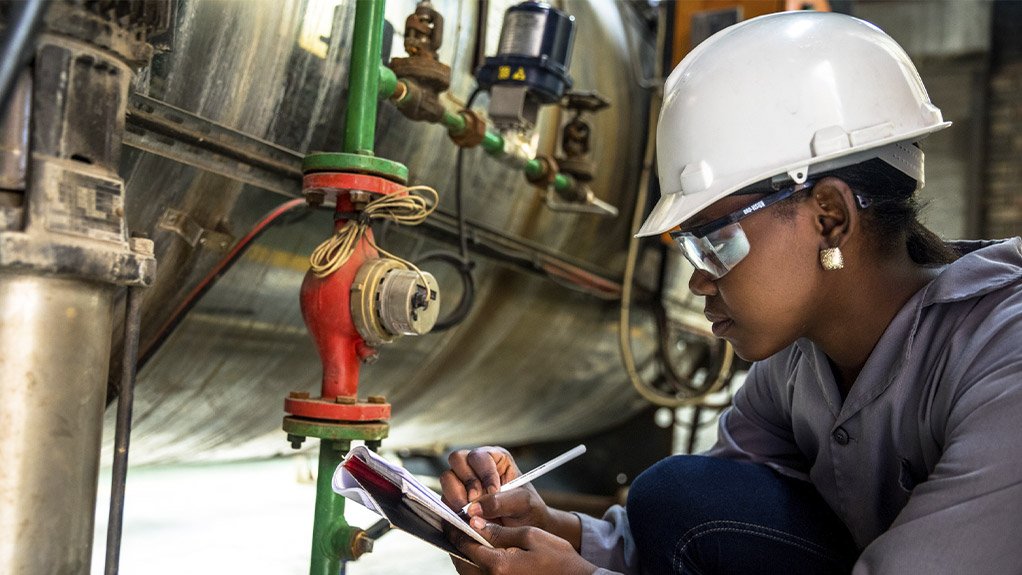The National Cleaner Production Centre (NCPC-SA) is looking to escalate the implementation of energy management in the South African industry to allow companies to benefit from the support of the Industrial Energy Efficiency (IEE) Project before the project ends in 2020/21. The IEE Project is implemented in partnership with United Nations Industrial Development Organization, the Department of Energy and the South African Energy Development Institute.
According to NCPC-SA project manager Inga Magodla, this will involve establishing demonstration sites to assist companies in implementing energy efficiency recommendations at plants and factories.
The IEE Project, started in 2010, intends to drive increased uptake of energy management systems aligned to the international energy standard, ISO 50001, by demonstrating the impact of energy management in reducing greenhouse-gas emissions and to show the financial impact of in-plant energy management.
NCPC-SA, as a programme of the Department of Trade, Industry and Competition (DTIC) at the Council for Scientific and Industrial Research, led the implementation of energy management in industrial companies, resulting in energy savings of 1 840 GWh and financial savings of R1.5-billion.
“The first phase of the project – concluded in 2015 – focused on establishing a footprint to provide open assessments where we could point out potential improvements that could be realised,” states Magodla.
The second phase of the project looks to expand the implementation of recommended changes and report on successful cases and case studies by 2021. The main focus in this stage, according to Magodla, is implementation.
Another goal of the project team at the NCPC-SA is to support the South African Bureau of Standards (SABS) to encourage more companies to become ISO 50001 certified, which, according to Magodla, is where companies can really start seeing ongoing savings.
“ISO 50001 requires continuous improvement to maintain certification, which translates into real energy and financial savings for the companies,” he says. The NCPC-SA and SABS teams hope to double the number of sites that are certified over the next 12 months.
Another catalyst to the increased uptake of energy management, is the growing realisation among funders that this is a financially viable intervention. The NCPC-SA has built a financial match-making support model into its services to industry, and the organisation aims to link smaller businesses with incentives and financial institutions to assist them to fund the recommendations until such time as the energy savings pay back any investment made.
The NCPC-SA team is confident that their support of industry in implementing energy efficiency measures will continue after the end of the project in 2021.
“In the past nine years, we have established a good base. Industrial efficiency is really well established in South Africa, and we are getting ready, with the DTIC, to drive it without engagement from international funders”.
Technology and Training
Since the inception of the IEE Project, more than 5 000 engineers have been trained, as well as 200 experts in energy efficiency, says Magodla.
The NCPC-SA runs two-day end-user-level training courses in energy management and energy systems optimisation in a variety of significant energy-use systems.
The IEE Project course material has also been used as the basis for occupational qualifications in energy-efficiency, which are in the process of being recognised under the National Qualifications Framework (NQF) at levels 6 (Energy Audit Technician) and 8. The Energy Audit Technician qualification has been registered by the South African Qualifications Authority (SAQA) and Level 8 qualification awaits SAQA’s approval.
Magodla highlights that training for these qualifications will not be offered by the NCPC-SA, but would be done at accredited training institutions once rolled out.
He also states that all NCPC-SA energy management training is aligned to the implementation of an ISO 50001 energy management system and, for the beginner, there is training in energy management 101.
He explains that those who have completed energy management expert level courses through NCPC-SA have already completed many of the modules that will be required towards the new NQF Level 8 course.
“We have enough qualified engineers and technicians in South Africa who can drive energy management. Graduates need to be prepared to engage not only with industry but also at an academic level before graduating. It’s a matter of bridging that gap between university study and industry, as well as establishing what the industry requirements are and what should be taught at an academic level,” Magodla concludes.






